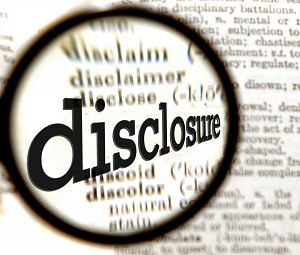 The public disclosure bar can be a major factor in a qui tam action brought under a False Claims Act. The bar seeks to prevent lawsuits by “opportunistic plaintiffs who have no significant information to contribute of their own.” Graham County Soil & Water Conservation Dist. v. U.S. ex rel. Wilson, 559 U.S. 280, 294 (2010). To overcome the bar, the relator needs to be the original source of the information.
The public disclosure bar can be a major factor in a qui tam action brought under a False Claims Act. The bar seeks to prevent lawsuits by “opportunistic plaintiffs who have no significant information to contribute of their own.” Graham County Soil & Water Conservation Dist. v. U.S. ex rel. Wilson, 559 U.S. 280, 294 (2010). To overcome the bar, the relator needs to be the original source of the information.
Unfortunately for some relators, some courts have applied the bar too stringently, finding that a case can’t proceed when it is based on publicly available information. However, a recent case out of the Seventh Circuit Court of Appeals took a more lenient route which should benefit future relators. U.S. ex rel. Heath v. Wisconsin Bell, Inc., 12-3383, 2014 WL 3704023 (7th Cir. 2014).
In Wisconsin Bell, the relator was a telecommunications auditor who was hired by several Wisconsin school districts to review their charges. Through an extensive review of the charges administered by Wisconsin Bell, Heath discovered that the school districts were being overcharged in violation of the Educational Rate Program, a federal subsidy program that is supposed to reduce the cost of schools’ telecommunications services.
The relator’s public disclosure issue was that the claims were based in part on a contract that Wisconsin Bell had posted on its website that showed that they were charging entities less than they were charging the schools. The trial court found the contract to be a publicly disclosed transaction that barred the relator’s case.
The Seventh Circuit came to the rescue. The appellate court reversed the trial court’s dismissal noting that it has been “cautioned against the use of the public disclosure bar at a ‘high level of generality.’” Wisconsin Bell, Inc., 2014 WL 3704023 at *4 (citing U.S. ex rel. Goldberg v. Rush Univ. Med. Ctr., 680 F.3d 933, 935–36 (7th Cir. 2012)). The appellate court explained that the publicly disclosed contract was merely a piece of confirmatory evidence and that the relator was still the original source of the “extensive knowledge of the schools’ telecommunications pricing,” and how the pricing related to “similarly situated” entities, which was the real crux of the case. Wisconsin Bell, Inc., 2014 WL 3704023 at *3. Based on this ruling, the relator is free to continue prosecuting the case.
If you have a question about the implications of these regulations or if you think you might be the original source of a False Claims Act case, please contact us.


